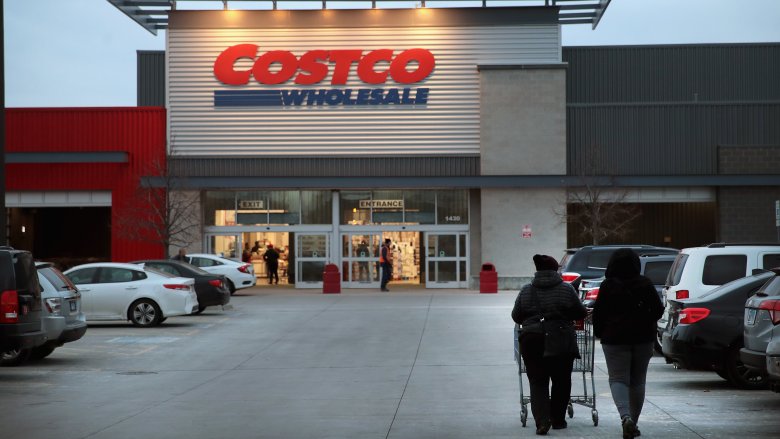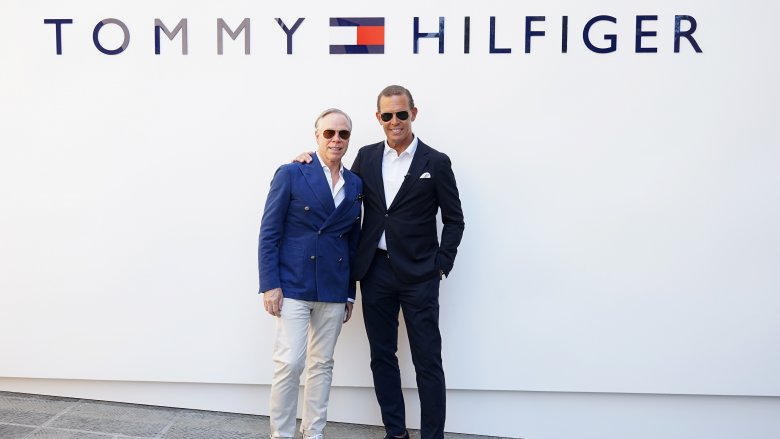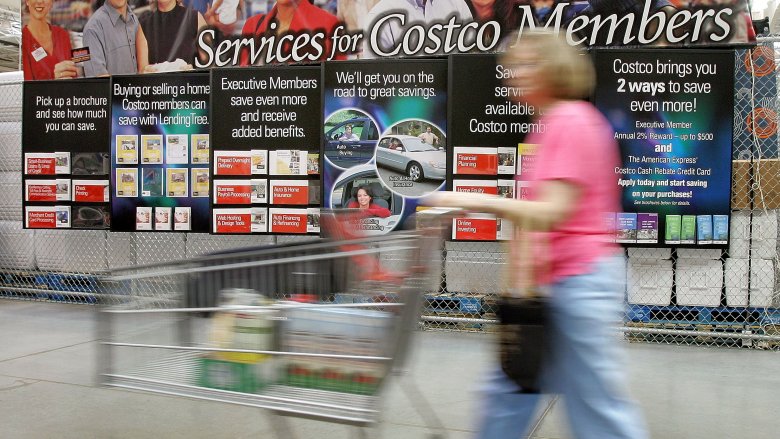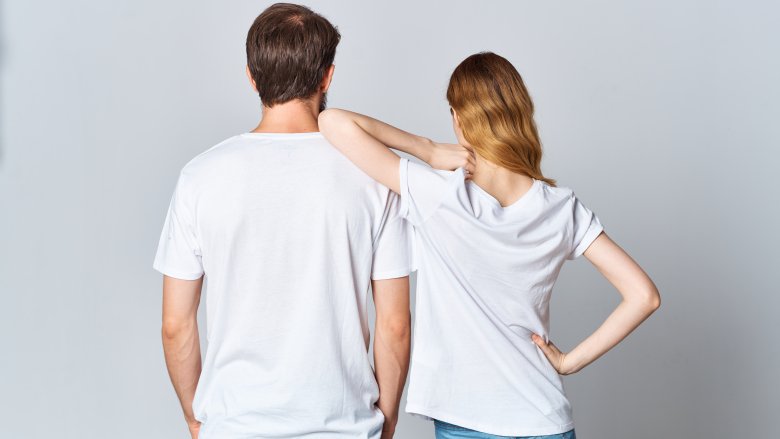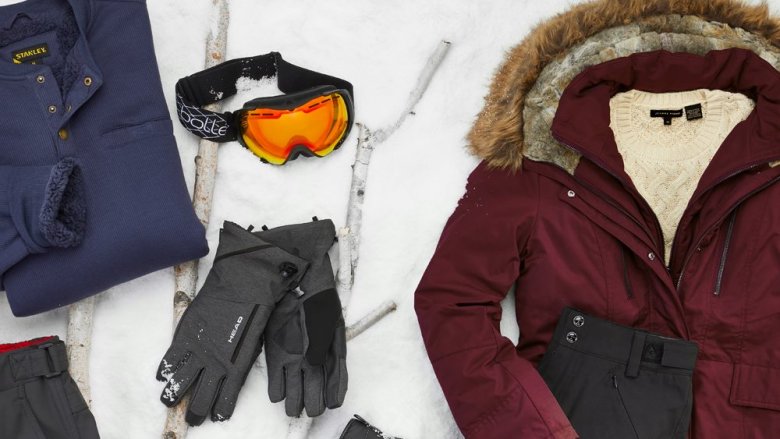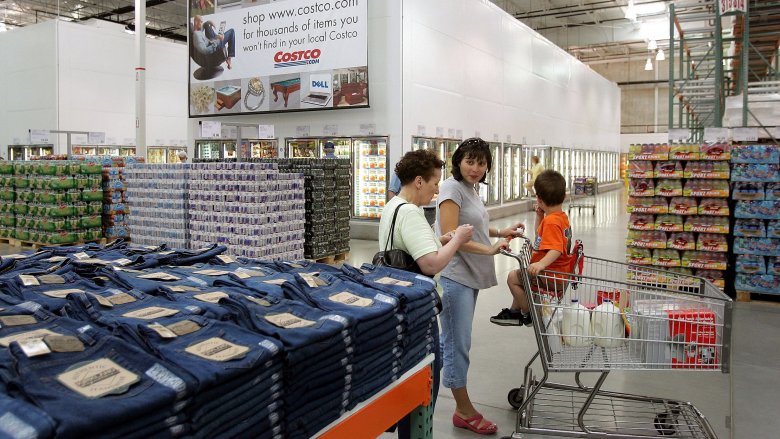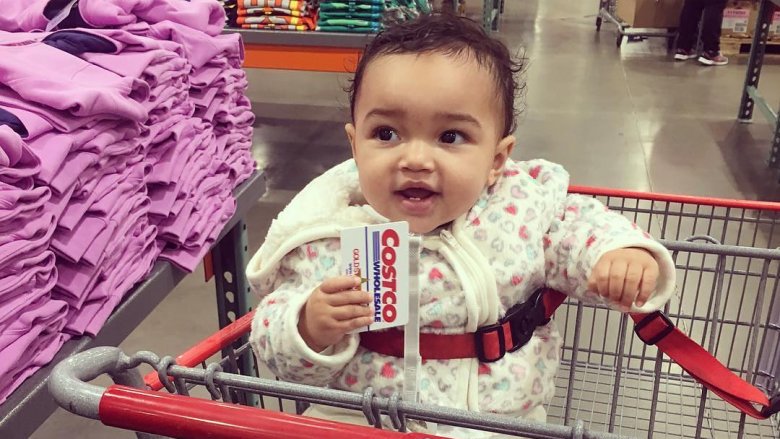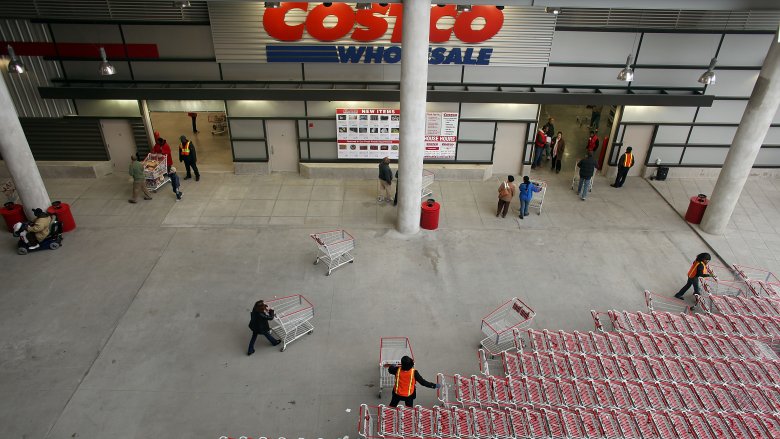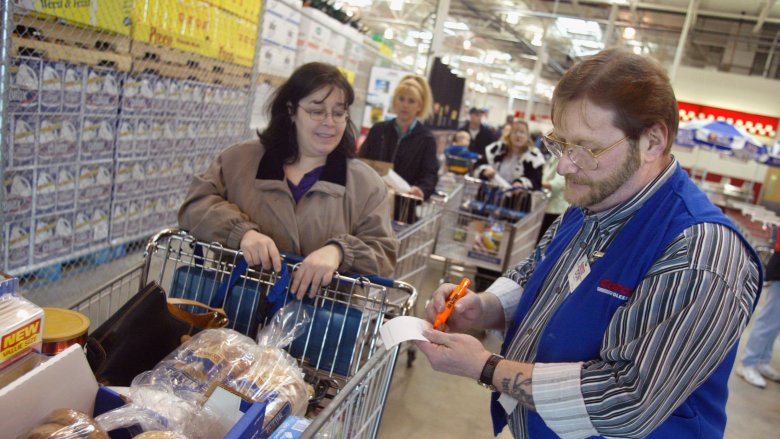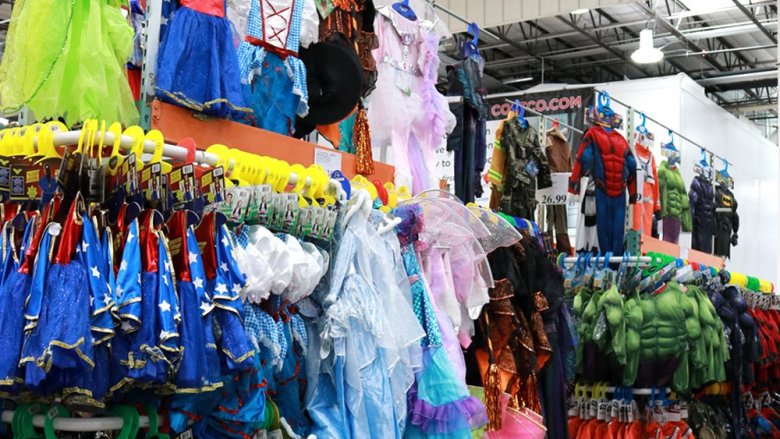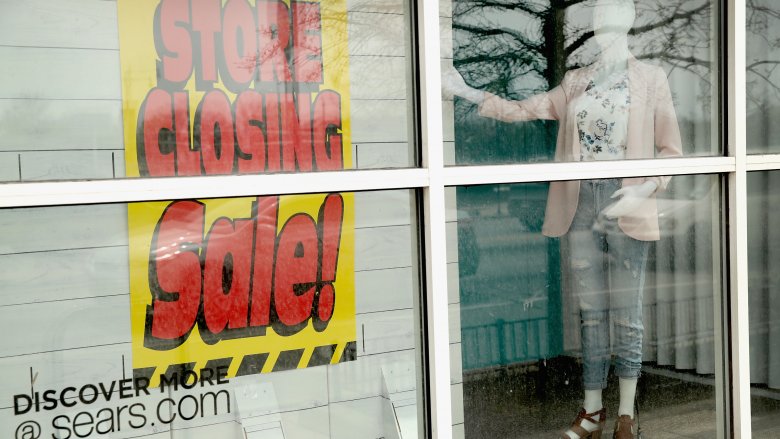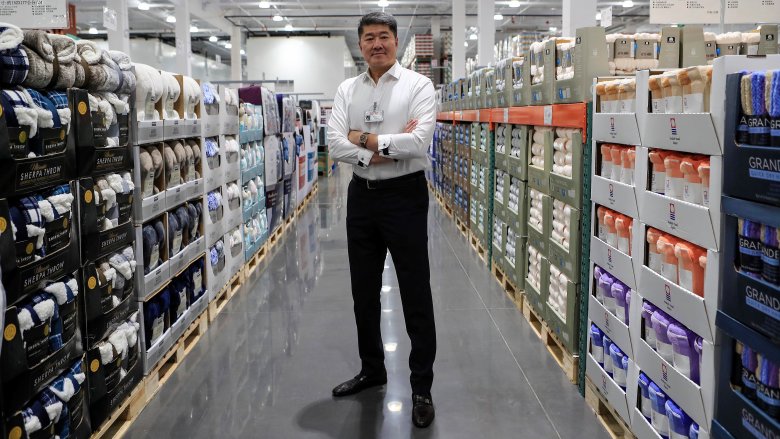How Costco Makes $7 Billion A Year Selling This One Unexpected Item
Those people who love Costco? Well, they really, really love Costco. Members swear by them for everything from their delicious chickens to their deals on toilet paper, prescription medications, to the everyday food items you love to buy in bulk, and... clothing?
Absolutely. Costco's clothing might be the best kept secret that everyone knows and no one talks about. You never know what you're going to find there, but there's usually something good, isn't there? And most surprisingly, if you make a regular walk-through Costco's clothing section a must on your trips there, you're not the only one... by far.
According to The Washington Post, Costco takes in around $7 billion a year selling clothing. That's shocking, especially considering they're not even thought of as a clothing store. How they managed to make such a sweeping retail coup is impressive, and it'll make you look at their clothing section in a whole new way.
Costco carries a ton of designer labels
If you think it's weird getting clothes and groceries in the same place, you're not alone. When The Washington Post took a closer look at just how Costco manages to make so much money selling clothes, they found that even the biggest doubters were eventually swayed by the realization they could get designer labels there for pennies on the dollar.
Take a wander through Costco's clothing section, and you'll find name brands like Calvin Klein, Tommy Hilfiger, Eddie Bauer, North Face, Lucky Brand, Ugg, Birkenstock, and Jessica Simpson... and that's just for starters. They're all names you'd expect to see on the racks of any clothing store, with a much, much higher price tag. There's a bit of a trade-off with Costco, though, and that's simply that you'll find a selection of styles, colors, sizes, and choices that is more limited than what you'd find in a more traditional clothing store. That, and you don't always know what's going to be in stock. But that's part of the fun.
It's all about the Costco-style treasure hunt
According to Instinet retail analyst Simeon Siegel (via The Washington Post), Costco's unpredictable and ever-changing stock of clothing is actually a huge boon for them. It's the thrill of the treasure hunt, he says, the draw of heading off to see what's in stock and what needs to go into the cart before it's gone. Because once it's gone, it's often gone for good — and that can encourage a savvy shopper to stop by more often, and feel the thrill of winning at bargain-hunting.
It's not uncommon for them to sell out of a particularly hot item in a day or two, and customers learn pretty quickly that if they want to grab a good deal, they've got to be quick.
And getting people in the door to check out limited-time offers is just one of a few ways Costco encourages their customers to spend, spend, and spend some more. So while it might seem like having unpredictable stock would be frustrating for customers, it actually gets them coming in regularly to see what's up for grabs... and not hesitating to buy it when they see it.
People like Costco's Kirkland clothing
Costco doesn't just carry name brands, they also carry their own Kirkland branded clothing — and more importantly, people seem to generally agree it's a good buy. When Heddels tested a few dozen plain white t-shirts to figure out what was the best, it was Kirkland's that came out on top, cited for comfort and long-lasting softness.
Customers on Red Flag Deals also recommended Kirkland, calling their jeans "good, comfortable, and moderately durable," their shirts "the best value on the market," and described their socks as "excellent, almost indestructible." Many Redditors agreed, singing the praises of Kirkland clothing for both durability and affordability — and let's be honest, those are the most important qualities at the end of the day, right?
And even the forum members over at Badger & Blade — who have profile photos that involve a lot of golf, polo shirts, and wine — say that the Kirkland clothing line is just about the perfect thing for everyday wear. Given that Costco is the only place you can find Kirkland, fans of the line are going to keep coming back for more deals.
Costco gets those items in non-traditional ways
So here's a question: how can they afford to sell designer labels so cheaply and still make a profit? Refinery29 wanted to find out, and found that most labels — including Ralph Lauren and DKNY — confirmed that they didn't actually partner with Costco to sell their goods. According to The NPD Group analyst Marshall Cohen, Costco gets their inventory in more non-traditional ways.
Those clothes are what's called "gray market goods," and while their methods are completely legal, they're sometimes not going through standard channels. That means Costco might get their goods through a third party, or even pick up overruns from factories.
And sometimes, it's a case of labels just keeping quiet about what they're doing with the extra inventory they can't move. It's entirely possible that companies are selling directly to Costco but aren't saying so publicly, and Instinet retail analyst Simeon Siegel put it this way (via The Washington Post): "If you've got a lot of inventory, dropping off a pallet at Costco and having it disappear by the end of the weekend isn't the worst thing. It's a way to move goods without hurting your brand." So, Costco gets a deal, passes those low prices on to their customers, and everyone's happy — so happy, Costco rakes in the billions.
Costco clothes might not be high-end quality
Kelly Davis told The Washington Post that it was a $13 pair of Jessica Simpson jeans that finally convinced her that Costco's clothing section had a lot to offer. With those prices, it's easy to have doubts — even though you know it's Costco's reputation on the line, and they wouldn't risk it with blatant knockoffs and mislabeled goods. Would they?
It's tricky, and when Refinery29 looked into just how Costco was able to sell so many designer labels, they came across something odd: there were a lot of people who were saying the clothes at Costco just weren't as high-quality as the same exact thing was when it was bought from a more traditional clothing store. They shrunk, they faded, buttons fell off. What's with that?
That led them to believe that a lot of the clothes on Costco's shelves might be not knockoffs, but lower-quality products from the real factories, sold to Costco at deep discounts. How does that happen? The NPD Group analyst Marshall Cohen says it's entirely possible those good deals come because the goods aren't quite good enough for sale in a traditional store, or they may have been made from leftover materials. He explains just what happens to the less-than-perfect shirt or pair of pants: "They can't sell it openly on the off-price market, so they sell it to the warehouse stores."
A smaller selection at Costco means less stress
It turns out that there's a reason people might shop for clothing at Costco that has nothing to do with the label or the price. It has to do with the limited selection they have... and that's a good thing for many.
Take Michele Kulwin, a teacher who told The Washington Post that she started out just picking up PJs at Costco, and now does most of her daily- and work-wear shopping there, too. Why? Because they have limited choices, which means no sorting through rack upon rack of clothing. Other stores, Kulwin says, make shopping "way too stressful" by overwhelming the customer with choices.
Retail analysts agree, saying there's an increasing number of shoppers who just want the store to present them with the best choices out there, not all the choices. When consumers are confronted by too many choices, they're more likely to walk away empty-handed than they are to buy something, and that's important, says Racked. The phenomenon actually has a name — the paradox of choice — and by taking away the stress and the feeling of being overwhelmed, it creates an environment where consumers are more likely to make purchases — and to feel good about them.
Costco is among the largest clothing retailers in the US
Seven billion is an almost unthinkable amount of money, and here's a little comparison (via Construction Global): that's around twice what it cost to build One World Trade Centre in New York City. The sheer amount of clothing Costco deals in every year makes them one of the largest clothing retailers in the world, which is seriously impressive. According to CNBC, Costco was the eighth largest clothing retailer in the U.S. in 2017, behind only Walmart, Amazon, Target, Kohl's, TJ Maxx, Macy's, and The Gap. That's some major competition to be in the company of for a chain mostly known for selling rotisserie chickens and bulk groceries.
Costco might be a massive clothing retailer, but they're also just massive. According to The Washington Post, their total $141 billion in annual revenue gives them some serious bargaining power when it comes to purchases, and they're not showing signs of slowing down at all. Southern Living says that the revenue they bring in from clothing is growing faster than the revenue they bring in from their food... and that's food for thought. Will we someday be buying groceries at our favorite clothing store?
Costco boasts the perfect meeting of age and fashion sense
Costco's choice to stock these kinds of clothing is even smarter than you think, and here's why. According to Fast Company, they have around 85 million members, and most of those members are from the age groups encompassing middle age and above. They're also the ones that are more likely to buy the designer labels that Costco carries, so that means Costco is 100 percent on target when it comes to putting clothing on their shelves that the majority of their customer base is going to buy. That's just good business sense, right?
But here's the thing — it's not clear whether or not it's going to cost them in the long run. Millennials, they note, are a generation that's not only concerned with where their food is coming from, but their clothing as well. They're gravitating more toward brands that are ethically sourced, and even Fortune has pondered whether or not Costco is going to be able to shift their core customer base from the parents and grandparents to the kids and the grandkids. Their brilliant business plan may have an expiration date.
It's all about Costco's image
Costco is definitely about buying in bulk, their store brand label, and some serious savings, but they're also about something else: luxury. Those designer brands on their shelves actually have a lot in common with some other items, things that include $17,000 bottles of whiskey and a $400,000 diamond ring. (Yes, Costco really sold that, says CNBC, in May 2019.) What gives?
According to Marketplace, Costco's stocking of stupidly expensive diamond rings and more reasonably priced designer clothes isn't entirely about sales, it's about setting them apart from their competitors and attracting a customer base with an average yearly income of around $100,000. It's a chain reaction — by stocking these things, they attract a higher-income bracket than, say, Walmart, and when they come in and see crazy deals on designer brands they know and love, they're darn well going to buy them. A lot. High-end items (and those designer labels) also help boost Costco's reputation for carrying high-quality products, and it's helped make Costco the trendy wholesalers — because we all know that these days, it's all about image.
A ton of Costco's competitors are going under
There's another very simple reason Costco has been able to cash in on the clothing market: a ton of their competitors have just disappeared.
Here's just a partial list of the clothing retailers that have filed for bankruptcy and closed — partially or entirely — since 2015 (via CB Insights): Sears, Payless, Gymboree, David's Bridal, Gump's, Rockport, Nine West, Claire's, The Walking Company, Bon-Ton, Styles for Less, True Religion, Papaya, Rue21, Gordman's, Gander Mountain, American Apparel, Aeropostale, PacSun... that's seriously only a small part of the list, and all those customers that were still shopping in all those stores needed to find somewhere else to shop.
Failing stores all had a few problems in common, and a big one is that they failed to foresee the rise of online giants like Amazon, and give people a reason to keep getting off their sofas and going out to a physical store. Fortunately for Costco, they found a way to cement a loyal fanbase willing to come to them, and that's allowed them to pick up the customers left looking for a new go-to clothing retailer.
There's a down side to Costco's success
It seems like everyone wins: manufacturers get rid of their stuff, Costco makes some cash, customers are happy. But there's a huge problem with Costco's clothing section, and Jezebel says that it's the fact that all this money is supporting something called fast-fashion.
What, you might ask, is fast-fashion? According to Style Democracy, they're a section of the clothing industry that are essentially products that are made cheaply, and because they're marketed as being super-trendy, they're the ones that are replaced in consumers' closets pretty quickly and usually end up in landfills. The industry uses a ton of water, has a vastly negative impact on the environment, and has been linked to human rights abuses, and workers paid low wages to work in poor conditions for countless hours.
Fast Company did more digging, and found that while some brands are making strides to becoming more sustainable, the vast majority were still playing the game of trying to forcast what was going to be popular and sometimes hitting, sometimes missing. The misses are the goods that sometimes end up on Costco's shelves, which means the retailer is a convenient outlet that guarantees fast-fashion companies aren't going to lose money, even when they miss. And that's troubling.
